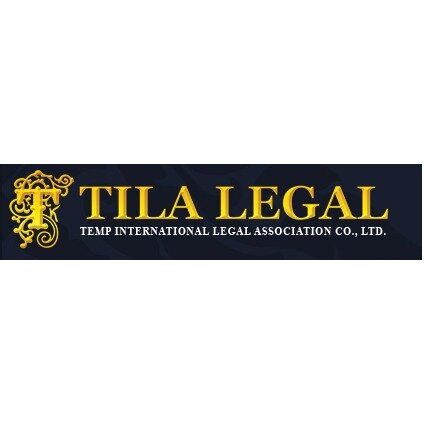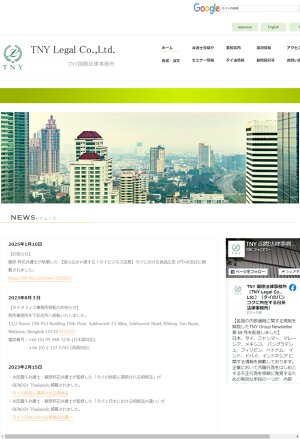Best Asylum Lawyers in Thailand
Share your needs with us, get contacted by law firms.
Free. Takes 2 min.
Or refine your search by selecting a city:
List of the best lawyers in Thailand
About Asylum Law in Thailand
Asylum law in Thailand is particularly complex given that the country is not a signatory to the 1951 Refugee Convention nor its 1967 Protocol. Despite this, Thailand hosts a significant population of asylum seekers and refugees. Asylum in Thailand is primarily managed by the United Nations High Commissioner for Refugees (UNHCR), in cooperation with various non-governmental organizations (NGOs). The Thai government exercises some discretion under immigration laws, which can impact the legal standing and treatment of asylum seekers.
Why You May Need a Lawyer
There are several scenarios in which individuals seeking asylum in Thailand may require legal assistance. These include understanding complex international and local laws, ensuring proper documentation and representation in legal procedures, navigating Thai bureaucratic systems for asylum processing, and dealing with potential legal issues related to immigration status. Lawyers can also help in filing appeals against negative asylum decisions and advising on alternatives available in the legal system.
Local Laws Overview
Thailand lacks a comprehensive legal framework specifically for asylum seekers. However, aspects of Thailand's immigration laws are relevant. Asylum seekers are often considered illegal immigrants due to the absence of asylum legislation, and they are susceptible to detention. The Immigration Act of 1979 is particularly relevant, as it outlines the legal grounds for detention, deportation, and penalties related to illegal entry. Legal aid centers and organizations can assist asylum seekers in understanding these laws and provide representation where necessary.
Frequently Asked Questions
What is the process for seeking asylum in Thailand?
Asylum seekers must register with the UNHCR, which conducts Refugee Status Determination (RSD) interviews to evaluate claims. This process can be lengthy, and legal advice may be necessary to navigate challenges during this period.
Are asylum seekers in Thailand entitled to work?
Generally, asylum seekers and refugees do not have legal permission to work in Thailand and risk detention for unauthorized employment. However, legal pathways or advocacy through NGOs may provide assistance.
What risks do asylum seekers face in Thailand?
Without legal status, asylum seekers face risks of arrest, detention, and deportation. Access to health care, education, and formal employment is limited.
Can children of asylum seekers attend school in Thailand?
Thailand has a policy allowing all children, regardless of status, to access basic education. Assistance from NGOs can be crucial in overcoming barriers to enrollment and attendance.
What legal protections are available to asylum seekers?
Legal protection is limited, and asylum seekers may rely on UNHCR interventions and NGO advocacy. Legal representation can aid significantly in navigating legal challenges.
Can an asylum denial be appealed in Thailand?
Yes, denials by UNHCR can be appealed. Legal counsel is beneficial to navigate this intricate process and maximize chances of a successful appeal.
What organizations provide legal assistance to asylum seekers?
Several organizations offer support, including Asylum Access Thailand, Jesuit Refugee Service (JRS), and Bangkok Refugee Center, among others.
How does Thailand handle asylum seekers from its neighboring countries?
Thailand has agreements with neighboring countries and occasionally conducts repatriations or manages asylum requests based on bilateral arrangements, typically involving NGOs and UNHCR for assessments.
Is there a path to citizenship for asylum seekers in Thailand?
No formal path to citizenship is available to asylum seekers in Thailand due to the lack of legal recognition of their status. Long-term solutions involve resettlement elsewhere or voluntary repatriation when safe.
How long does the asylum process typically take?
The process can be protracted, often taking several years due to high caseloads and resource limitations faced by UNHCR and related agencies.
Additional Resources
Here are some organizations and bodies that might be helpful:
- UNHCR Thailand: Provides guidance and assistance for asylum seekers.
- Asylum Access Thailand: Offers legal aid and advocacy for refugee rights.
- Jesuit Refugee Service (JRS): Provides social and legal support for refugees and asylum seekers.
- Bangkok Refugee Center: Offers various services to assist refugees and asylum seekers, including legal advice.
Next Steps
If you require legal assistance regarding asylum in Thailand, it is important to engage with a lawyer or legal aid organizations specialized in this field. Contact organizations like the UNHCR or local NGOs for initial guidance. For legal representation, seek lawyers experienced in refugee law and international human rights. Ensure all documentation and evidence supporting asylum claims are prepared, and maintain regular contact with your legal representative to stay informed about your case.
Lawzana helps you find the best lawyers and law firms in Thailand through a curated and pre-screened list of qualified legal professionals. Our platform offers rankings and detailed profiles of attorneys and law firms, allowing you to compare based on practice areas, including Asylum, experience, and client feedback.
Each profile includes a description of the firm's areas of practice, client reviews, team members and partners, year of establishment, spoken languages, office locations, contact information, social media presence, and any published articles or resources. Most firms on our platform speak English and are experienced in both local and international legal matters.
Get a quote from top-rated law firms in Thailand — quickly, securely, and without unnecessary hassle.
Disclaimer:
The information provided on this page is for general informational purposes only and does not constitute legal advice. While we strive to ensure the accuracy and relevance of the content, legal information may change over time, and interpretations of the law can vary. You should always consult with a qualified legal professional for advice specific to your situation.
We disclaim all liability for actions taken or not taken based on the content of this page. If you believe any information is incorrect or outdated, please contact us, and we will review and update it where appropriate.
Browse asylum law firms by city in Thailand
Refine your search by selecting a city.















